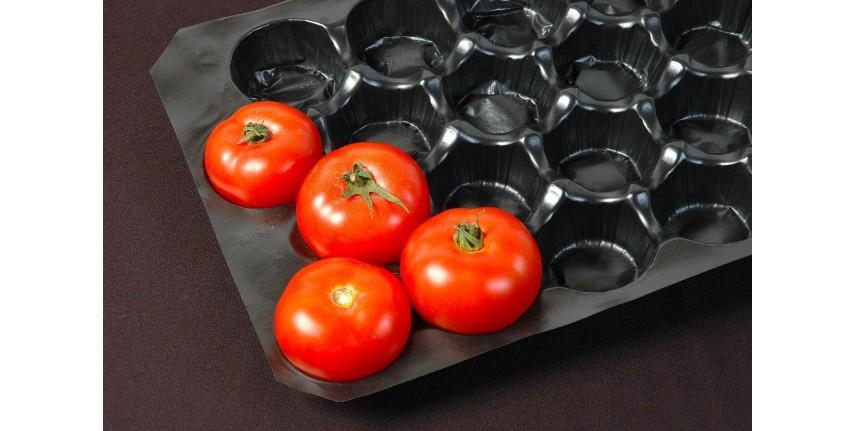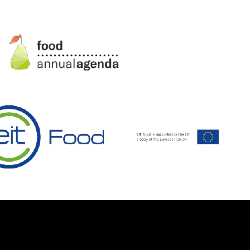
This event brought together experts on recycling, sustainable consumption, public health, materials, the plastics industry, and food retail for a wide-ranging discussion of plastic in the food chain and whether its usefulness outweighs its dangers. 201 attendees signed up with 79 participating in the live event and others opting to watch the recording (if you would like to do this, please click the link at the bottom of this page).
The event was skilfully chaired by Dr Claire Barlow who began and ended by conducting a poll to ask the audience ‘Is plastic for food packaging always bad?’ At the beginning of the event 78% thought it wasn’t compared with 87% by the end of the webinar. While the poll was taking place, each member of our distinguished panel gave a three-minute summary of their take on the subject and this was followed by audience questions. Some of the issues discussed were:
- It is very difficult for the waste management industry in the UK to identify different polymers which is a real stumbling block to recycling. It is hoped that the current government public consultation Consistency in Household and Business Recycling in England will lead to a more coherent system across the country.
- Packaging is essential to prevent food waste, itself a cause of more carbon emissions than plastic packaging; shorter food chains (i.e. reducing food miles) would mean less packaging would be required.
- Identifying the level of risk that chemicals in plastic packaging for food poses to human health is difficult but it’s very important that any unnecessary exposures to toxic pollutants are minimised and producers are transparent about what might be in our food chain.
- Consumers often are rarely offered a choice to buy food that isn’t packaged in plastic. If they were, they might choose to avoid it.
- While glass packaging, for yoghurt for example, might be appealing, it has a larger carbon footprint than plastic.
- We have to deal with plastic properly at the end of ts life.
- Wash and squash your recycling and put it in the right bin!
Our panel:
Dr Claire Barlow, Senior Lecturer, Department of Engineering, University of Cambridge.
Dr Barlow's research interests include: inter-relationships between processing parameters, mechanical properties and material microstructures; eco-efficient manufacturing; development of models for sustainable industry; material and product end-of-life aspects: re-use and recycling; value from waste and materials aspects relating to musical instruments.
Bryony Rothwell, RECAP Partnership Manager.
Bryony has worked in local government for over 20 years. She currently works with the RECAP Waste Partnership with Cambridgeshire and Peterborough Councils to improve efficiency and maximise public engagement with Resource and Waste Services and drive strategy for the Partnership. Reducing the impact of waste on the environment is a key driver for the whole Partnership.
Dr Michel Cassart, Sustainable Use Director, Plastics Europe.
Michel joined Plastics Europe in 2016. Plastics Europe is the European trade association for the plastics industry with a membership of more than 100 companies, producing 90% of all polymers across the EU. He coordinates all activities related to the sustainable use of plastics covering topics such as safety of plastics and microplastics.
Dr Stephanie Wright, Lecturer at the School of Public Health, Imperial College, London.
Stephanie is a lecturer at the Medical Research Council (MRC) Centre for Environment and Health, School of Public Health at Imperial College. She has over 9 years’ research experience in the field of microplastics, specifically in exposure and biological impacts. She participated in a European Commission microplastics working group and has contributed towards policy change.
Claire Hughes, Director of Product & Innovation, Sainsbury’s.
Following studies in parasitology and nutrition, Claire has worked in the food industry since 2005. Part of her role is to help deliver Sainsbury’s commitment to halve their overall plastic use by 2025.
Dr Lili Jia, Senior Research Associate Institute for Manufacturing, University of Cambridge.
Lili leads the Incentivising Sustainability Programme at the Department of Engineering’s Centre for Industrial Sustainability. Her research focuses on incentivising behaviour changes toward health and environmental sustainability. Her article on "Motivating actions to mitigate plastic pollution" was among the Top 50 Earth and Planetary Sciences Articles 2019 in Nature Communications.
Please find the event recording HERE. Access Passcode: 2021!*&ty
The event is organised by the Cambridge Global Food Security and Energy IRCs, supported by #AnnualFoodAgenda, an EIT Food project.


